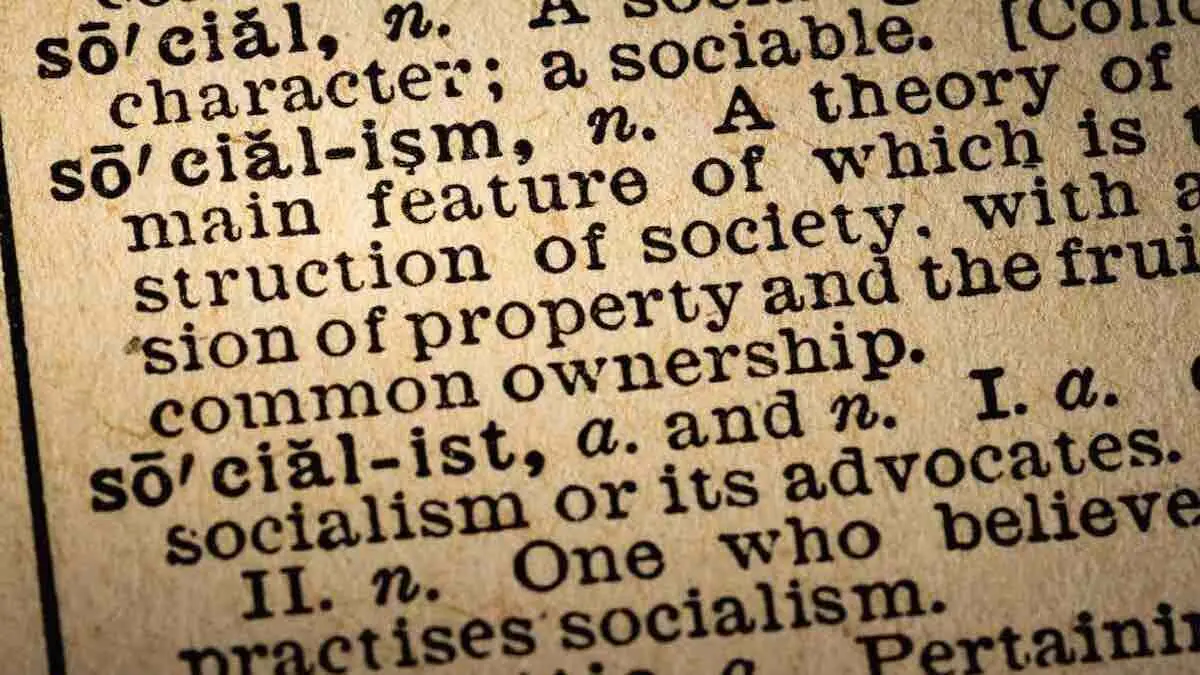Table of contents
What is Socialism?
It is helpful to provide a simple definition of socialism for people who are not political scholars.
Socialism is an economic doctrine that calls for the public rather than private ownership or control of property and natural resources.
Simple Definition of Socialism
Socialism vs Capitalism
Socialists critique capitalism as a system of private ownership where capitalists own the means of production and extract surplus value (profit) from workers’ labour. Capitalists do this by exploitation, in paying workers less than the value of their labour and keeping the difference between this amount and the price they sell goods for. The difference or ‘profit’ is seen by socialists as simply ‘theft’.
However, socialists believe that everyone who contributes to the production of a good is entitled to a share in it. Therefore society as a whole should own, or at least control property for the benefit of all its members. Hence, socialism promises to share wealth evenly and fairly across the economy.
According to this simple definition of socialism, capitalism rewards those who own the means of production at the expense of those who have nothing to sell but their labour. It is hard to disagree with this.
There are different ideas about the best way to create a socialist society. Karl Marx argued for a ‘workers revolution’ to overthrow the ruling class.

Types of Socialism
Forms of socialism range from democratic socialism (a mixed economy where the public owns key industries, like coal, electricity, water and gas, etc and shares the income, but allows private industry to operate elsewhere) to state socialism (where the state controls all of the means of production and decides what to produce and how to produce it).
There have been different types of socialism proposed, but all involve some level of public ownership.
• Democratic socialism is a type of socialism that calls for a socialist society that is democratically run.
• Utopian socialism is a type of socialism that calls for public ownership in a socialist society that is run according to socialist ideals.
• Market socialism is a type of socialism that calls for public ownership of the means of production but allows for a certain amount of private ownership and market activity.
• State socialism is a type of socialism that calls for public ownership of the means of production and distribution but allows for a certain amount of private ownership. One example of state socialism is the former Soviet Union.
Simple definition of Socialism and Eco-Socialism
Today, any simple definition of socialism must include eco-socialism. Since the beginning of the epoch of destruction of the natural world, known as the Anthropocene, Eco-Socialism has gained greater prominence. Eco-Socialism brings together the ideas of ecology and socialism. Consequently, it promotes a society without class divisions that lives in balance with nature.
The destructive nature of capitalism is more obvious than ever. Capitalism is an economic system that is at odds with sustainability. Indeed Marx argued the exploitation of nature is as fundamental to the profit system, as the exploitation of working people. So this was clearly a part of Marx’s definition of socialism.
Continuous growth is central to capitalism. This includes continued growth in the consumption of the world’s natural resources. Our planet’s natural systems will continue to be destroyed due to capitalism’s destructive forces.
As a result of this destruction, we see the emergence of new diseases and global heating causing climate change. Consequently, this brings droughts, bushfires and sea level rise. Crop failures, food shortages and mass starvation will also result if stronger action is not taken.
However, eco-socialism provides a vision to organise people around the world, to prevent continued socioeconomic and environmental destruction.
Simple Definition of Socialism: Further Reading
There are many excellent socialist publications. In short, these include Counterpunch, The Progressive, Jacobin, Red Flag and the Green Left.
I hope you found our simple definition of socialism useful.

Leave a Reply